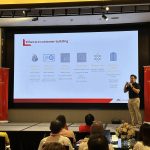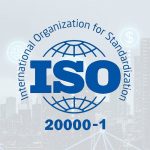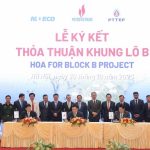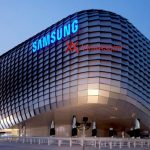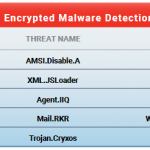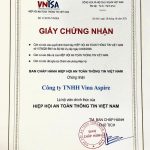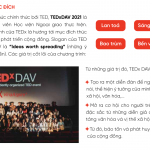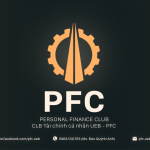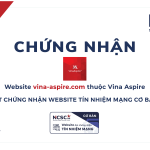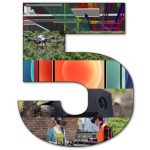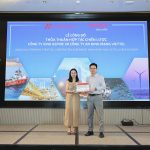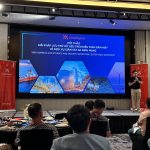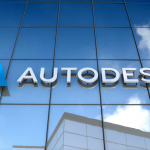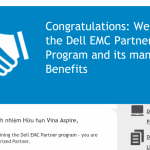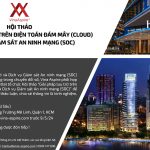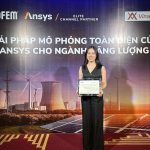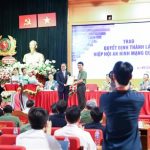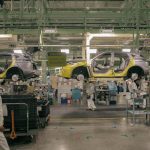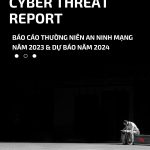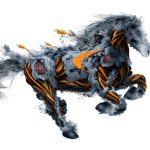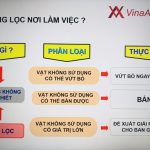With the goal of both economic development and environmental protection, the world trend has shifted to approaching circular economic model solutions to replace the traditional linear economic model; towards developing sustainable production and consumption, regenerating resources in a closed cycle, to minimize waste discharge into the environment, bringing economic and social value.
This is the origin of the green business concept and plays an important role in the cause of environmental protection. The article starts from images of businesses joining hands to protect the environment, presents remaining limitations in the operations of green businesses, and then offers solutions to develop green businesses in Vietnam.
According to a Nielsen survey released in the conference “Brand strategy associated with green development”, 45% of global respondents are willing to pay more for environmentally friendly products, 41% are willing to pay more for environmentally friendly products. willing to pay more for environmentally friendly packaging, etc. Vietnamese consumers in the 4.0 era are no exception to the above trend. They are increasingly interested in green food, green services and green businesses. Green businesses always attract consumers because of their concern and environmental protection, helping to improve the lives of workers. In particular, always constantly create and improve products to minimize negative impacts on the environment.
Green Business is a business that does not cause negative impacts on the local environment or the earth, on the community or the economy. For a business to be rated “Green Enterprise” it must be based on 3 factors, main criteria include:
- Comply with laws on environmental protection;
- Comply with environmental regulations and standards;
- Compliance with environmental management records and other related issues.
Becoming a green business helps the business itself have a clean working environment, minimizes the consequences on the living environment and society, and contributes to creating brand and consumer support
2. Green businesses join hands to protect the environment in Vietnam
In the context of the world shifting to a phase of safe adaptation to epidemics and economic recovery, the Vietnamese Government also requires businesses to develop products and brands associated with green elements – using raw materials , friendly technology, offering clean products for the environment. Following that trend, many businesses have developed into green businesses through the following directions:
Firstly, constantly research, access modern science, and apply technology to bring green products that are useful to the community. For example, Discovery Group has for many years grasped the world’s development trend following the 3R orientation (Reduce – reduce, Reuse – reuse, Recycle – recycle). Businesses go green from the smallest actions and plans, that is: using a modern, simple working environment, not using many materials,…
All appliances are optimized for simplicity while promoting many features in one space. Product strategy is also gradually being greened. A series of projects of the Group are oriented towards green economic investment, from the Discovery Luxury Project located in the GS planning area of the city. Hanoi, has a very high density of trees, creating an open and clean environment right in its project area, to a series of projects under investment survey, such as: Discovery Paradise ecological urban area project in Lam Dong province, Sapa Discovery Lotus Project, Project to Build Living Space for the Elderly near Hanoi,… All projects have meticulous investment in architecture to create good spaces, in healthy and convenient for users. A special feature of these projects is that businesses have used renewable materials and renewable energy.
Second, use recycled materials, limit emissions and water discharge from business activities. The brand that has been mentioned a lot in recent years is Heineken. Efforts made by Heineken include using renewable energy at 5/6 factories; cutting CO2 emissions across its entire network. In 2019 only, Heineken cut more than 2,000 tons of CO2 emissions by optimizing load, using trucks that meet Euro 4 standards and taking advantage of transport by train.
In particular, today, Heineken almost no longer landfills waste and scrap products, because 99% of them are recycled. Beer bottles and cases are returned to the factory after being released to the market and undergo a strict sterilization process, ensuring they meet hygiene standards so they can be reused. A glass bottle can be reused up to 20 times and a beer keg can be reused for 5-10 years, after which it will be shredded and resold to glass and plastic supply companies.
Or like TH, in May 2018, the TH true mart store system stopped using plastic bags, instead using product bags made of environmentally friendly biological materials. To encourage consumers to reduce plastic bags and single-use nylon bags when shopping or in daily activities, TH Group donated and then officially sold canvas bags at the TH store system. true mart nationwide from October 2020.
Part of the revenue from selling canvas bags has also been used by TH to accompany environmental protection and nature conservation organizations in Vietnam. TH true MILK is also the first and only brand in the dairy industry to use yogurt spoons made from environmentally friendly biological materials instead of plastic spoons. In February 2021, TH stopped using plastic shrink film for bottle caps for the pure water product TH true WATER 350.
Third, businesses spread the “green” spirit through many meaningful projects. For a typical example, Coca-Cola Vietnam Company has had programs to respond to the plan “Say no to plastic waste”. In January 2018, Coca-Cola launched the World Without Waste campaign globally through the action framework: Design – Collection and Collaboration, with a commitment to collect and recycle equivalent to 100%. packaging that Coca-Cola sells by 2030.
In terms of design, recycled and environmentally friendly materials have been used in the beverage packaging production process. Coca-Cola is also one of nine leading companies in the field of consumer goods and packaging pioneering the founding of the Vietnam Packaging Recycling Alliance (PRO Vietnam). PRO Vietnam was established from 9 leading companies in the field of consumer goods and packaging with a common desire to contribute to a green, clean, and beautiful Vietnam by promoting the circular economy model through jobs for The collection and recycling of product packaging is made possible in a more accessible and sustainable way.
Accordingly, PRO Vietnam will support the development of a strong domestic packaging collection and recycling ecosystem, helping to increase recycling rates and minimize the rate of packaging discharged into the environment. Specifically, PRO Vietnam will promote support for activities in areas including raising consumer awareness about recycling and waste classification, strengthening the ecosystem, and collecting available packaging.
The “3 Green” project includes Green VinMart, Green Customers and Green Suppliers of the VinMart system, focusing on steps to reduce or replace single-use plastic materials with environmentally friendly items at 2,200 supermarkets. VinMart and Vinmart+ markets. At the same time, give 1,000 VND to the purchase invoice for each shopping transaction in which the customer uses the bag multiple times or supports the recovery of used batteries. The positive effect of “3 Xanh” is like a strong spreading wave. It is not difficult to come across content about this unique campaign on social networks Facebook, Instagram, Zalo,… or consumer associations and groups with thousands of members.
Or at the Lotte system, launched in April 2019 at 14 LOTTE Mart shopping centers and supermarkets nationwide, the LOTTE Eco Green campaign “I act, so do you” has inspired a large number of consumers. Limit the use of plastic bags and reduce plastic waste. At the same time, we aim to make LOTTE Mart the first supermarket in Vietnam that does not use plastic bags.
Many domestic businesses have been taking green business as their strategy and competitive advantage. From using environmentally friendly materials, supporting green social responsibility activities, to seriously investing in production lines that reduce waste and emissions. However, there are still many challenges for businesses in the green consumption trend.
First, the choice between profit and the environment. All businesses create waste. For some industries, it may only include waste paper or wastewater, but for some other industries, it is toxic and dangerous waste, requiring special treatment methods. No matter what type of waste or volume of waste a business produces, it is very expensive. Businesses have to pay twice for everything they use, once when they buy it and a second time when they leave it. Therefore, balancing profits and greening will likely cause corporate profits to decline due to increased costs. However, if done properly, businesses can simultaneously improve efficiency, productivity and corporate image.
Second, there is a lack of systems and policies to develop green businesses. Although businesses will have to invest a relatively high initial investment capital if implementing green production projects. However, there are currently not many incentives for businesses to borrow capital for green development, while there are no resources for implementing the Government’s 2030 Agenda for Sustainable Development in the medium-term plan, so Many businesses are not interested in green development.
3. Solutions for developing green businesses in Vietnam in the coming time
Firstly, on the Government side, the State introduces a clean development policy towards the production and consumption of environmentally friendly products, on the other hand, plays the role of a large consumer that affects shopping tastes. and product consumption, stimulating demand for environmentally friendly products. When the State implements the program, it will promote sustainable production and consumption, create conditions for manufacturers to invest in environmental protection activities, help reduce pollution emissions, and improve environmental quality. ; reduce costs of treating environmental pollution; Orienting the development of green economic sectors associated with effective use of raw materials and energy, preserving and increasing the value of natural capital, and improving quality of life.
Second, in green enterprises, the implementation of greening the enterprise must be consistent from leadership to employees. Leaders must be pioneers in the company’s green development orientation, thereby changing the way of thinking and acting of each individual employee throughout the enterprise. Specifically, businesses need to proactively innovate technology, develop clean energy sources, renewable energy, and production technology that saves resources, consumes little energy, and is environmentally friendly.
To resolve the conflict between profit and environmental protection, businesses do not necessarily have to invest in modern equipment but can do so through simple actions such as: complying well with environmental protection regulations. environment, improving production processes to reduce raw materials, fuel, electricity and prioritizing the use of environmentally friendly input materials.
Third, because the concept of green business in Vietnam is still very new, it requires research and widespread dissemination of knowledge among leaders, policymakers, businesses and people. Without full awareness, social consensus will not be achieved, so it will be difficult to implement.
Fourth, promoting the role of social organizations, professional organizations, press and media agencies in propagating, disseminating and supervising the implementation of corporate environmental protection responsibilities is extremely necessary and must be given attention. In addition, it is necessary to promote the role of the Consumer Protection Association in speaking up to protect consumers against production and business activities and products that are harmful to consumers’ health.
Vina Aspire is a consulting company, providing IT solutions and services, network security, information security & safety in Vietnam. Vina Aspire’s team includes skilled, qualified, experienced and reputable experts and collaborators, along with major domestic and foreign investors and partners to join hands in building.
Businesses and organizations wishing to contact Vina Aspire Company with the following information:
Email: info@vina-aspire.com | Website: www.vina-aspire.com
Tel: +84 9 4400 4666 | Fax: +84 28 3535 0668
![]()
Vina Aspire – Vững bảo mật, trọn niềm tin

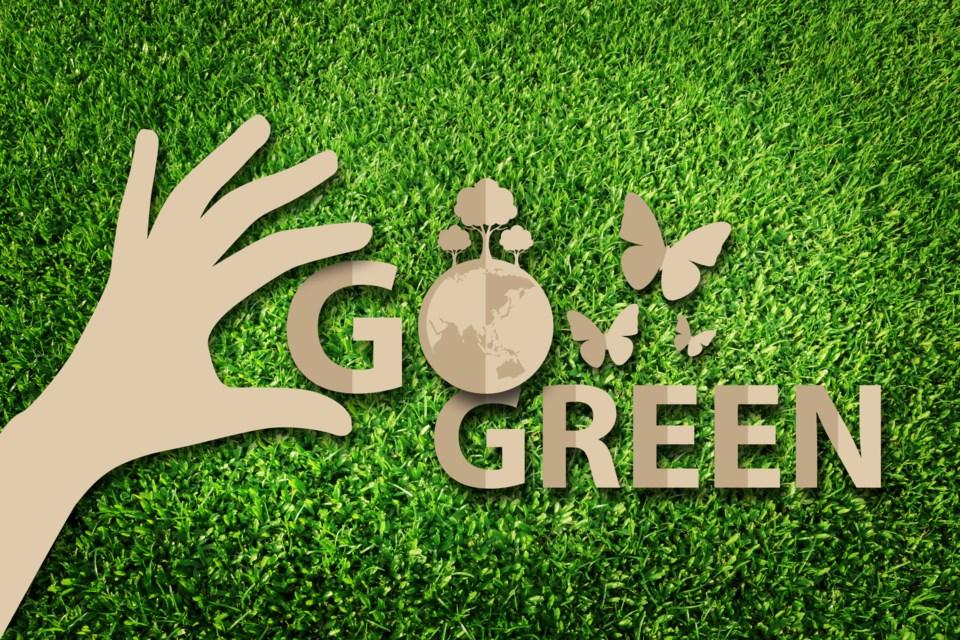
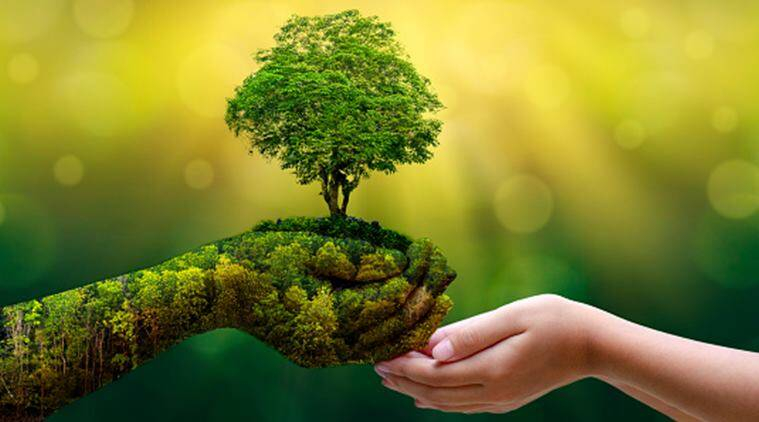
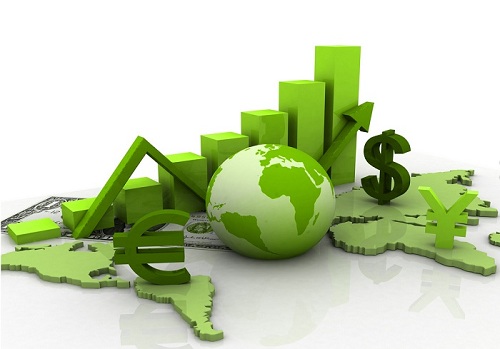









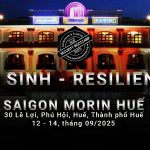
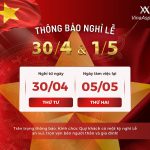

 VINA ASPIRE UNVEILS OFFICIAL BRAND AMBASSADOR MIRA – INTELLIGENCE. ELEGANCE. TECHNOLOGY.
VINA ASPIRE UNVEILS OFFICIAL BRAND AMBASSADOR MIRA – INTELLIGENCE. ELEGANCE. TECHNOLOGY.  A New Chapter Begins In an era defined by digital transformation, where cybersecurity, artificial intelligence, and enterprise…
A New Chapter Begins In an era defined by digital transformation, where cybersecurity, artificial intelligence, and enterprise…

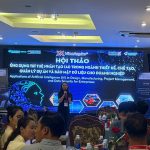


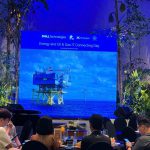




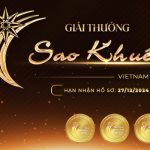


 …
…
